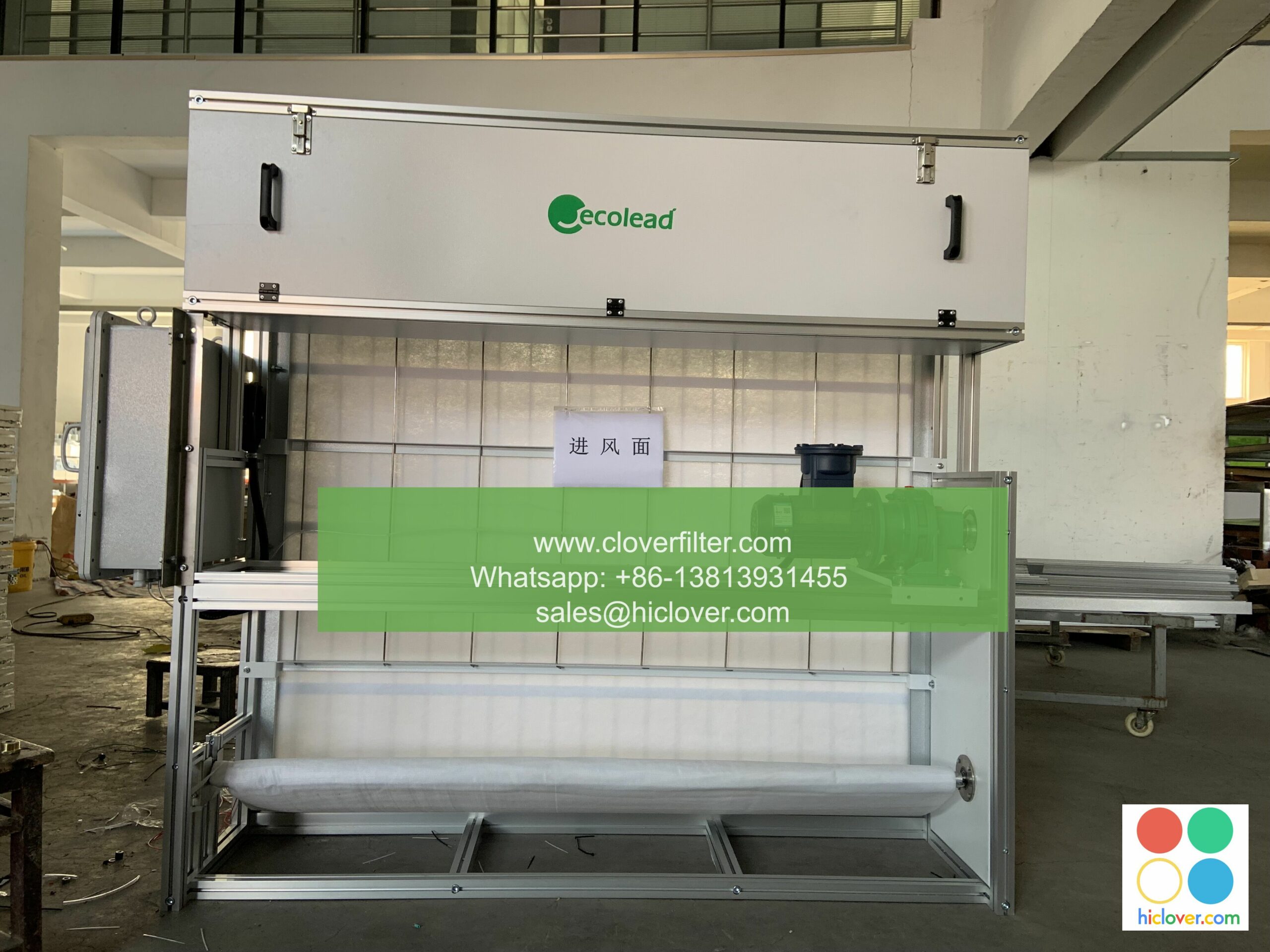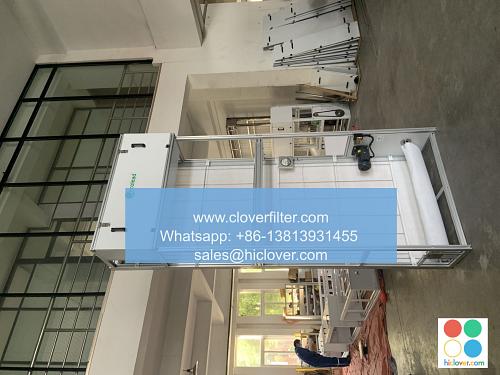Maintaining Cleaner Air in London’s Pharmaceutical Cleanrooms with Automatic Roll Air Filters

London’s pharmaceutical industry is one of the most prominent in the world, with numerous cleanrooms operating across the city. These cleanrooms are critical for the production of medicines and vaccines, requiring strict control over airborne contamination to ensure product quality and safety. One crucial component in maintaining cleaner air in these facilities is the use of automatic roll air filters. In this article, we will explore the importance of these filters in pharmaceutical cleanrooms and how they contribute to a cleaner and healthier environment.
Pharmaceutical cleanrooms are designed to minimize airborne contamination, which can include particles, microorganisms, and other pollutants. These contaminants can originate from various sources, including outdoor air, personnel, and equipment. To mitigate these risks, cleanrooms rely on advanced air filtration systems that can capture particles as small as 0.1 microns. Automatic roll air filters are an essential part of these systems, providing a high level of filtration efficiency and reliability.
Automatic roll air filters work by using a continuous roll of filter media that unwinds as it becomes dirty, replacing the used section with a new, clean one. This process ensures that the air passing through the filter remains clean and free from contaminants. The filters are designed to capture particles of various sizes, including dust, pollen, and microorganisms, making them ideal for use in pharmaceutical cleanrooms. By maintaining a consistent level of air quality, these filters help to prevent contamination and ensure the quality of the products being manufactured.
In addition to their filtration efficiency, automatic roll air filters also offer several operational benefits. They are relatively low maintenance, as the roll of filter media can be easily replaced when it becomes exhausted. This reduces downtime and minimizes the risk of contamination during maintenance activities. Furthermore, the filters are designed to operate continuously, providing a consistent level of air quality throughout the cleanroom.
The use of automatic roll air filters in London’s pharmaceutical cleanrooms also helps to comply with regulatory requirements. The Medicines and Healthcare products Regulatory Agency (MHRA) and the International Organization for Standardization (ISO) set strict standards for cleanroom air quality, and these filters play a critical role in meeting these standards. By maintaining a high level of air quality, pharmaceutical manufacturers can ensure compliance with regulatory requirements and maintain the trust of their customers and patients.
In conclusion, automatic roll air filters are a crucial component in maintaining cleaner air in London’s pharmaceutical cleanrooms. Their high level of filtration efficiency, reliability, and low maintenance requirements make them an ideal solution for these critical environments. By investing in these filters, pharmaceutical manufacturers can ensure the quality and safety of their products, comply with regulatory requirements, and maintain a competitive edge in the global market.
Conclusion
Maintaining cleaner air in pharmaceutical cleanrooms is essential for ensuring the quality and safety of medicines and vaccines. Automatic roll air filters are a critical component in achieving this goal, providing a high level of filtration efficiency and reliability. As the pharmaceutical industry continues to evolve, the importance of these filters will only continue to grow. By understanding the benefits and operational requirements of automatic roll air filters, pharmaceutical manufacturers can make informed decisions about their cleanroom air filtration systems and ensure the continued production of high-quality products.
FAQs
Q: What is the primary function of automatic roll air filters in pharmaceutical cleanrooms?
A: The primary function of automatic roll air filters is to capture particles and contaminants from the air, maintaining a high level of air quality and preventing contamination.
Q: How do automatic roll air filters comply with regulatory requirements?
A: Automatic roll air filters help pharmaceutical manufacturers comply with regulatory requirements by maintaining a high level of air quality, meeting the standards set by organizations such as the MHRA and ISO.
Q: What are the benefits of using automatic roll air filters in pharmaceutical cleanrooms?
A: The benefits of using automatic roll air filters include high filtration efficiency, reliability, low maintenance requirements, and compliance with regulatory requirements.
Q: How often should automatic roll air filters be replaced?
A: The replacement frequency of automatic roll air filters depends on various factors, including the level of contamination, air flow rates, and filter media quality. It is recommended to follow the manufacturer’s guidelines for replacement schedules.
Q: Can automatic roll air filters be used in other industries?
A: Yes, automatic roll air filters can be used in various industries, including food processing, electronics, and healthcare, where high levels of air quality are required.

